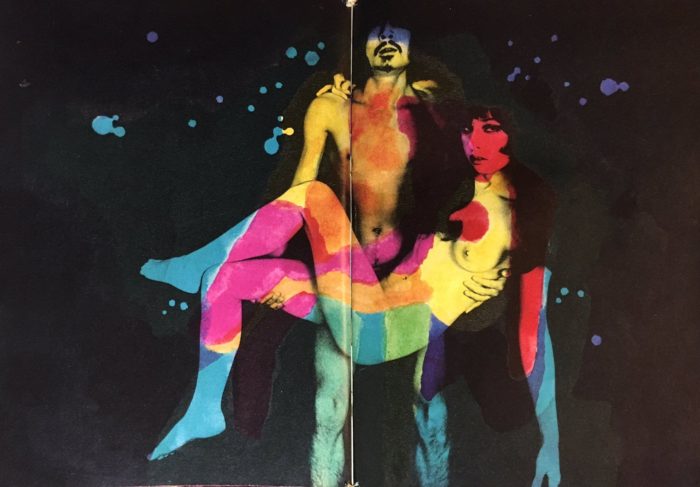Recently, we were lucky enough to catch the legendary Carmen Maki in the intimate surroundings of the Lady Jane jazz bar in Shimo-Kitazawa, Tokyo. Carmen, who was recovering from a multiple rib fracture, was backed by a single musician, Kazuhisa Uchihashi, the guitarist with free jazz trio, Altered States.
The songs were mainly from her Déraciné project, an interesting title given her multiple names and identities. It was only in 1993 that she took Japanese citizenship; under what name remains unknown.
Three of the pieces appeared on her recent mini-album of the same name, which is available only as a 7 inch vinyl record. The title song features her own lyrics. On the B-side is Nozomi No Nai Koi, a translation of Lorca’s poem, Gacela of Desperate Love. And into that she interpolates a story-poem by Shuji Terayama called The Sound of Waves.
See below for the text in English.
Carmen Maki has a deep relationship with the work of Terayama. As a teenager in 1969, she drifted to Shinjuku, the centre of the Japanese counter-culture at the time, and became a member of Tenjo Sajiki, Terayama’s avant garde theatre troupe.
Soon afterwards she burst onto the music scene with the Terayama-penned million-seller Toki Niwa Haha No Nai Ko No Yo (“Sometimes Like a Motherless Child)”.
Despite the title, the song has little in common with the American gospel classic. Carmen subsequently recorded an album of Terayama songs, mostly in a melodic style influenced by European folk and chanson.
After receiving a pile of new albums from a music industry friend, Carmen became entranced by Janis Joplin and quickly transformed herself from waif-like chanteuse to raunchy rock diva.
In the early 1970s, she formed the band Oz, which pumped out heavy rock in the style of Deep Purple and Grand Funk Railroad. Her 1979 album Night Stalker was produced by and featured Carmine Appice of Vanilla Fudge and Beck, Bogart, & Appice fame.
While singing rock’n roll and living the associated lifestyle, Carmen maintained contact with art-song styles and the work of Terayama in particular. The retrospective collection that marked her 45th year in the music industry is made up of two discs – Rock Side and Underground Side. More recently she has collaborated with jazz and avant garde musicians and poets.
She is still going strong. The flame continues to burn.
First published in Terayama’s Shojo Shishu (“Poetry for Young Ladies”) in 1969, The Sound of the Waves is performed by Carmen Maki as a spoken word piece. The text in English is below.
The Sound of the Waves, by Shuji Terayama
A forgotten woman lived alone
In a red boarding house in a port town
Every day at sunset she would go to the sea’s edge
And record the sound of the waves on a cassette recorder
Her room was filled with cassette tapes with dates written on them
Whichever one you listened to, all you could hear was the sound of the waves
“Why do you just record the sound of the waves every day?”
Asked a young sailor who happened to be passing by
“I don’t even know myself”
Replied the forgotten woman
“But when I listen to the sound of the waves I feel so peaceful”
It was said that once there was a mariner this forgotten woman loved
That mariner went on a long voyage to the seas south of Costa Rica
And never came back
There were rumours that he left ship in another town, gave up the sea and married
Or had been shipwrecked and drowned
The woman believed neither, she just went on waiting and waiting
One day the forgotten woman didn’t come to make her recording at sunset
“That’s odd,” thought the young sailor, but didn’t pay much attention
But the next day and the day after that too
Again she didn’t appear
Finally the young sailor went to look for the woman in the red boarding house
And found that her room was unlocked and there was nobody inside
When he switched on the cassette player
He heard the sound of the waves
It was just the usual sound of the waves at sunset
But when he listened carefully
A feeling of loneliness seem to suck him into it
Suddenly, perhaps it was his imagination
But he heard a soft splash of something hitting the water
“What’s that!” he thought and wound the tape back
And, yes, he heard it again, the soft splash


